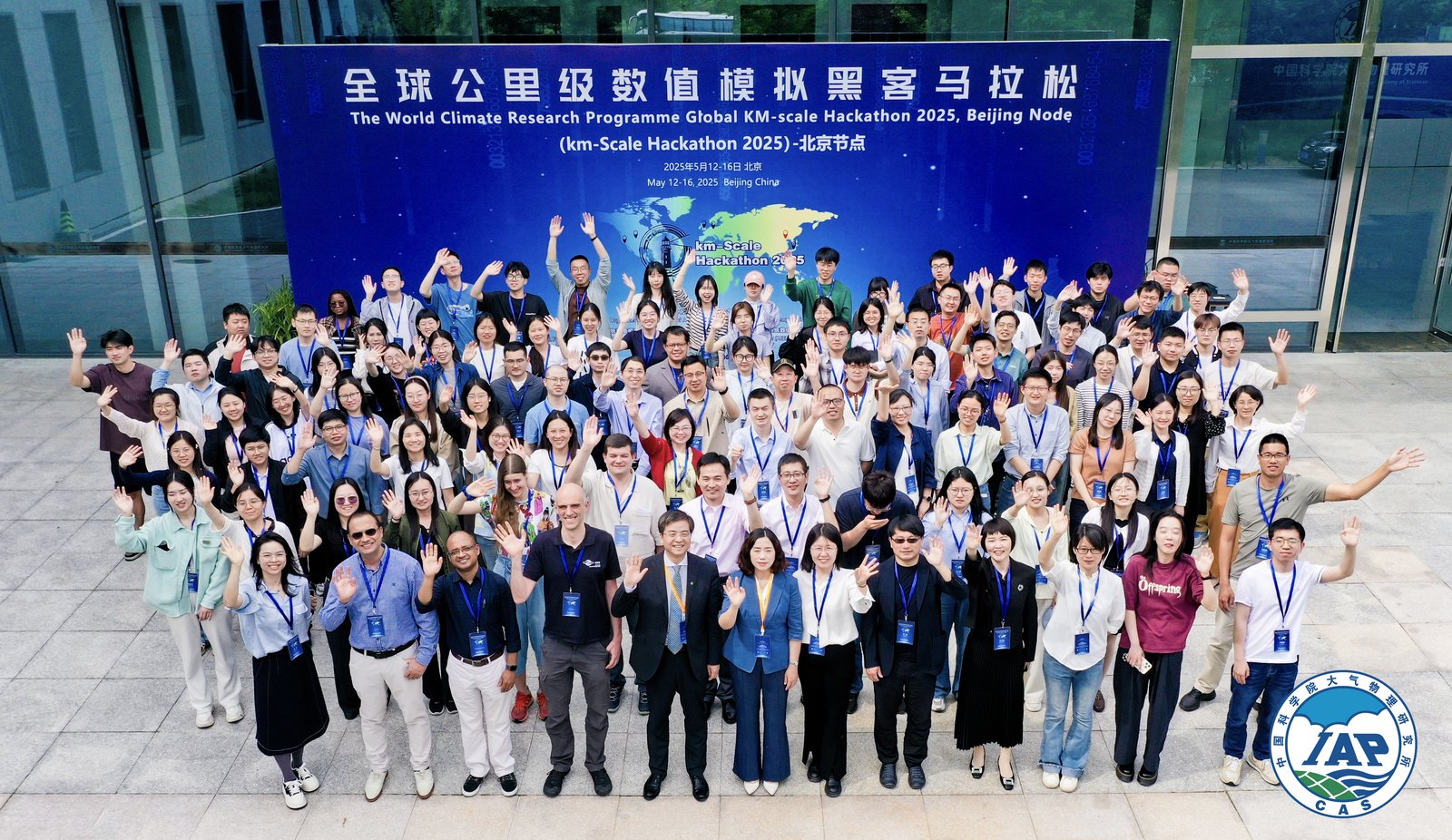
Scientists from around the world are gathering in Beijing this week to address pressing challenges in climate science through cutting-edge Earth modeling and international collaboration during the Beijing node of the Global KM-Scale Hackathon.
The five-day event, held Monday through Friday, was hosted by the Institute of Atmospheric Physics (IAP) under the Chinese Academy of Sciences.
ALSO READ: Chang'e-5 collected glass beads reveal secrets of Moon's deep interior
Organized by the World Climate Research Programme (WCRP), the WCRP Global KM-Scale Hackathon 2025 aims to foster cross-border cooperation and innovation.
Scientists from nine nodes -- including Beijing, Hamburg in Germany, Boulder, Colorado in the United States, Tokyo in Japan, and Oxford in Britain -- are jointly analyzing high-resolution simulations generated by leading Earth/climate system models to advance the next generation of Earth system modeling.
READ MORE: Construction begins on cold-seep research facility
Leveraging China's national scientific infrastructure, the Earth System Numerical Simulation Facility, the Beijing node is focused on major climate issues such as the Asian monsoon, extreme precipitation, abnormal typhoons, Pan-Third Pole climate, and compound high-temperature and drought events.
READ MORE: China pledges global cooperation to address climate change
"As climate extremes intensify, kilometer-scale modeling offers an unparalleled level of detail in understanding both regional and global phenomena," said Cao Junji, a professor at the IAP. "This hackathon exemplifies how global scientific communities can illuminate pathways to resilience in an era of climate uncertainty."
Cao added that the event also highlights China's growing role in driving innovation in climate science.


